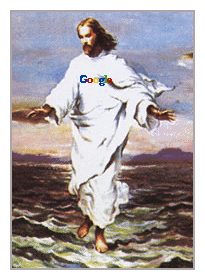This article is more than 1 year old
Google: the mother of antitrust battles?
The internet, and how to own it
Comment The US Senate today embarks on what could become years of antitrust investigations into Google by the IT, telecoms and media industries.
The hearing today is just that - a piece of political showboating ordered by antitrust subcommittee chairman Herb Kohl. It's not a formal investigation, let alone a lawsuit. Yet with the destiny of much more than today's precious "Web 2.0 economy" now in one company's hands - 90 per cent of paid search advertising goes through Google - it's surely just the start.
Whether regulation will be able to put but a dimple in Google's ascendance remains to be seen. Google's vast data centres and its own private networks promise to give it de facto control over the delivery of content. A parallel business strategy is to squeeze the life out of access networks, the one area where it shrewdly doesn't want to play. Google is content to leave "last-mile" and wireless operators as unprofitable, commodity conveyors of bits. If the strategy is successful, it will ensure that no one will be able to make money from the internet except Google itself - leaving the public internet effectively in one company's hands. (Forget about the TV, newspaper, movie and music industries. By the time they wake up to the Google threat, they will by then be smoking ruins…)
So Google has been readying itself for regulatory intervention for several years. It lobbies extensively, and thanks to its reach-out program to politicians and wonks, now owns a fair chunk of mindshare among the political elites. With its private "Zeitgeist" conference - an annual orgy of self-glorification - it reaches over the heads of representatives and and hacks to the political leaders and media owners themselves. In the UK, there's a revolving door between the two major parties and Google.
Politicians can sprinkle a little of the future on themselves just by rubbing up against the web giant.
As Microsoft discovered, fortuitously, this is money well-spent. A sympathetic Bush administration dissolved the DoJ's will to impose tough penalties against Microsoft more effectively than any lawyer or economist.

Google, as it appears to a politician
And as Microsoft demonstrated, too, regulatory scrutiny is no obstacle to the real business at hand of winning large state IT contracts. Microsoft remained a favoured supplier, despite the years of antitrust litigation in the US and Europe. Google is well-placed to bid for giant IT projects such as health and data integration.
Google also pays careful attention to academia and think-tanks. A $2m donation to Lawrence Lessig's Stanford University law centre saw him swing into battle for the internet giant in its litigation against copyright holders, with snidey bloggers dubbing him "Professor Google". (Google's cost of business falls when the awkward business of paying creators goes away). And Lessig's cohort, Berkman co-founder Jonathan Zittrain recently offered a very romantic view of network innovation, with the threats to this blissfully happy landscape coming from consumer electronics and telecoms companies. Google's threat wasn't mentioned once. But perhaps this isn't surprising when you look at who sponsors Zittrain's Berkman Center. In each case, the puppetmaster calls the tune.
Google is able to achieve such mastery over politicians, the media and hackademics not only because they don't know what they're doing (that's a given, these days) but because Google offers to uniquely "know" something that they don't - a new form of "knowledge". Google offers to tell them what the cow is thinking below. (The picture is a slide from a Google analyst presentation from 2006:

Perhaps this is the end of scientific theory as we know it. Or not. But either way, Google's presentation dazzles the feeble-minded.
So what's the beef?
Well, there are a limited number of ways you can make money on the web. You can take a cut of transactional revenue, as eBay and Amazon do. Or you can opt for advertising. There's big buck brand advertising - for which you need to hire a sales team and woo large advertising agencies, which means you need scale, and large investment. Or there's classifieds - and it's this segment that has powered the growth of Google, Yahoo! and smaller web start-ups in the past five years. And this is what's under scrutiny.
Regulators should thank Yahoo! co-founder Jerry Yang, for accelerating a process that otherwise might have taken years to come about. Quite incredibly, Yang handed Google dominant market power in paid search advertising a few weeks ago, when he announced Yahoo! would trial Google's Adsense. It was just a trial, Yahoo! said, but by giving its prime advertising competitor access to its own properties, it couldn't be making a clearer statement. This destroyed any illusion that paid search advertising was a highly competitive three way market - and almost nobody noticed.
It's ironic because Yahoo! "owns" the technology responsible for Google's dominance today, thanks to Yahoo!'s acquisition of Overture five years ago.
